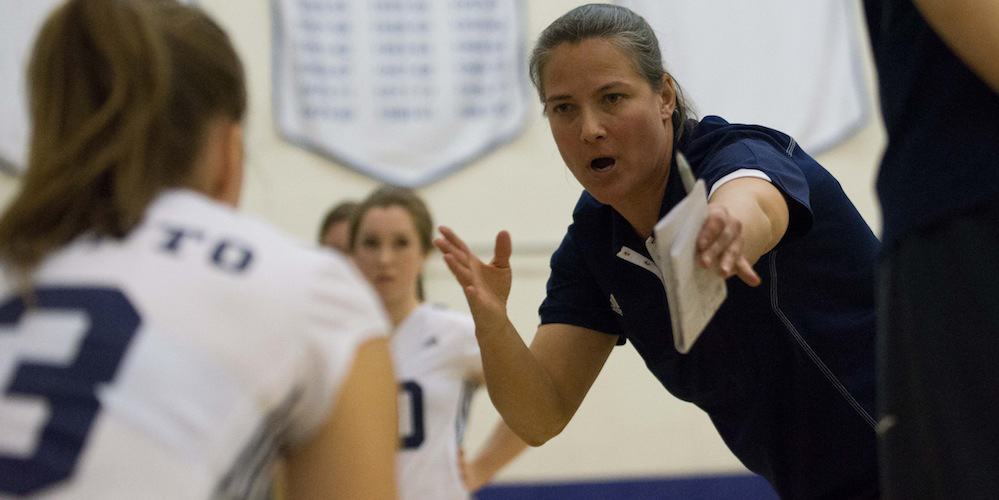Former and current players on the Varsity Blues women’s volleyball team commemorated coach Kristine Drakich on her twenty-fifth year during a game this season. “It was a surprise,” Drakich said, despite the fact that she’s won seven Ontario University Athletic (OUA) titles.
She added, “I can’t believe it’s been 25 years already,” and promptly changed the subject. Throughout her time as a coach, Drakich would deflect any attention on her personal success or on an individual from her roster, and redirect the attention back on the team. Her insistence that a team should be viewed as a whole, rather than a collection of parts, is a recurring theme throughout Drakich’s experience at U of T.
At one point, Drakich wasn’t sold on coaching. After playing for U of T from 1983 to 1986, Drakich joined the national team hoping to qualify for the Seoul Olympics. Unfortunately, Canada did not qualify, and Drakich returned to play for the Blues in 1988.
Drakich’s return was short-lived. After she tore her ACL, Drakich was at a crossroads, but as one opportunity closed, another opened. Liz Hoffman, U of T’s director of athletics at the time, offered Drakich a coaching position.
Prior to the offer, Drakich had no interest in coaching, but she accepted it thinking that it would be a temporary position: “I really thought I would be a coach for a short time,” she said. At the time, there was no full-time position for U of T’s women’s volleyball.
Drakich worked with the athletic director and the university to develop a full-time position through a fellowship grant. At the time, U of T was ahead of the curve. “As far as an athletic department,” Drakich said, “we were asking questions that other people weren’t.” With U of T’s progressive approach and their total commitment to her, Drakich immersed herself in coaching.
Over the years, Drakich developed an approach to coaching that matched U of T’s attitude for sports. “I demand a great deal, but I care about the development of the athlete holistically,” she said.
Beyond fundamentals, her approach emphasizes that volleyball isn’t everything, just a part of what makes something whole. “Volleyball to me, it’s like life. It’s how you’re going to cope, how you’re going to handle the challenges that are presented.
“Sports are a wonderful place. Where else can you invest so fully… of yourself, and feel incredible joys and the agony, where it’s really — it’s about keeping the ball off the ground and trying to put it on the other side,” she says.
Drakich believes the sacrifice to keep a ball off the ground is a transferable skill that applies to success in other facets of life: “Through sport you can get all these tools… Its fascinating seeing people graduating and seeing how they are making a difference in the world, the communities they are in.”
The future of women’s volleyball continues to grow under Drakich’s tenure. Next year the team moves into a new facility: the Goldring Centre for High Performance Sport.
“It’s outstanding,” she said about the facility. “It’s kind of neat that,” she briefly paused to collect her thoughts and laughed, “I don’t know if it will be for another 25 years — can’t take anything for granted.” After 24 OUA final four appearances, forgive Drakich for being a little optimistic.


